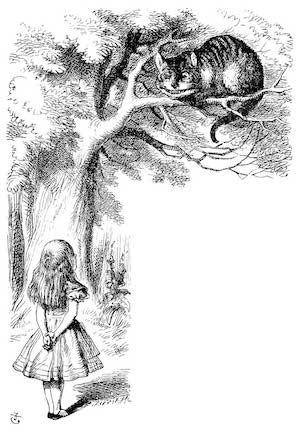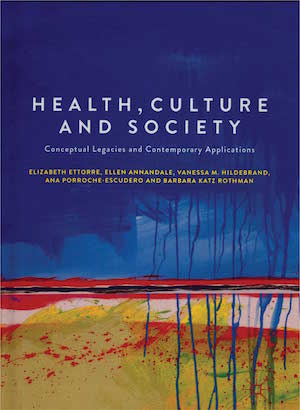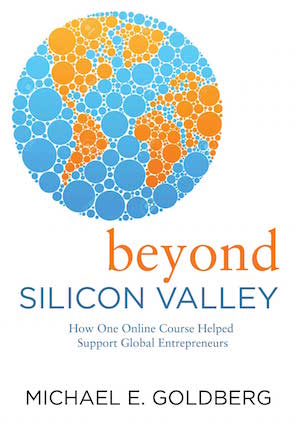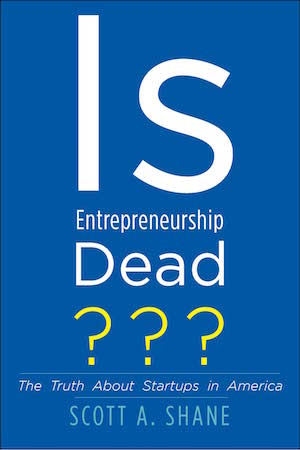LENS
Science of Surprise
A cognitive scientist's exploration of plot twists and revelations
 An illustration on the cover of Vera Tobin's new book. It's by John Tenniel and was created for the 1865 edition of Lewis Carroll's Alice's Adventures in Wonderland.
An illustration on the cover of Vera Tobin's new book. It's by John Tenniel and was created for the 1865 edition of Lewis Carroll's Alice's Adventures in Wonderland.
Critics and audiences alike hailed the film The Sixth Sense when it debuted in 1999. The story of a troubled boy who sees dead people and the psychologist who tries to help him had a plot twist so shocking that people still marvel years later at the craftsmanship. But while viewers weren't expecting the ending, a number of clues were there all along.
Smartly written narrative surprises like that one (which won't be ruined here, so keep reading) are the focus of Elements of Surprise (Harvard University Press) by Vera Tobin, PhD. An associate professor of cognitive science at Case Western Reserve, Tobin doesn't give all of the credit to screenwriters and novelists; she believes they rely on the human mind's predictable "biases and shortcomings" to shock us time and time again.
For example, in the desire to lead audiences astray—before the satisfying conclusion—writers depend on the "curse of knowledge," which means that what we already know shapes how we take in new information.
Tobin writes that skilled writers plant information that is remembered at the right moment—but will go unconsidered or misinterpreted until the big reveal. Tobin also offers examples of satisfying surprises in classic literature and more recent books and movies, analyzing them by asking:
- What makes a narrative surprise satisfying?
- How do these stories continue to surprise us using the same small bag of tricks?
- Why do twists work, and why don't we see through them?
- Is human cognition a wonderful, amazing system, or is it a big pile of disappointing biases and shortcomings?
We'd tell you the answers, but it's better to be surprised by the book.

The Mexican Revolution in Chicago: Immigration Politics from the Early Twentieth Century to the Cold War (University of Illinois Press) by John Flores, PhD, an associate professor of history and co-director of the university's Social Justice Institute. The book examines a pre-1960s civil-rights movement involving a generation of Mexican immigrants who worked with labor unions, Spanish-language media, the Mexican government and the Roman Catholic Church to improve conditions for Mexican-Americans living in Chicago. Flores, the son of Mexican immigrants, tells the stories of activists and analyzes actions by federal and local government agencies that he calls out as discriminatory.

Health, Culture and Society: Conceptual Legacies and Contemporary Applications (Palgrave Macmillan) co-authored by Vanessa Hildebrand, PhD, assistant professor of anthropology, with Elizabeth Ettorre, PhD, professor emerita at University of Liverpool; Ellen Annandale, PhD, a professor at University of York; Barbara Katz Rothman, PhD, a professor at Baruch College and the Graduate Center at the City University of New York; and Ana Porroche-Escudero, PhD, a research associate at Lancaster University. Hildebrand's chapter, "Gift Giving, Reciprocity, and Exchange," is based on her 15 years of research in a rural Indonesian village and examines the exchanges of goods and services there between pregnant women and their midwives.

Beyond Silicon Valley: How One Online Course Helped Support Global Entrepreneurs (Self-published) by Michael Goldberg, an assistant professor of design and innovation. Goldberg created the massive open online course (MOOC) "Beyond Silicon Valley: Growing Entrepreneurship in Transitioning Economies," which has attracted students from 190 countries. The book includes Goldberg's key lessons for growing entrepreneurial communities that are far from California's innovation hotbeds. The book also showcases community leaders who took his MOOC and are working to cultivate more entrepreneurial activity in countries including Iran, Vietnam and Botswana. Available for free download at beyondsiliconvalleybook.com.

Is Entrepreneurship Dead? The Truth About Startups in America (Yale University Press) by Scott Shane, PhD, the A. Malachi Mixon III Professor of Entrepreneurial Studies and professor of economics. Shane planned to write a book explaining why entrepreneurship was in long-term decline—at least according to conventional wisdom. He soon realized that premise was incorrect. Shane dismantles traditional explanations of entrepreneurship's decline and instead argues that different trends need to be examined. He highlights indicators that tell a different story, namely that the number of newly incorporated startups is up, fewer startups are failing and more companies are securing investment dollars.





